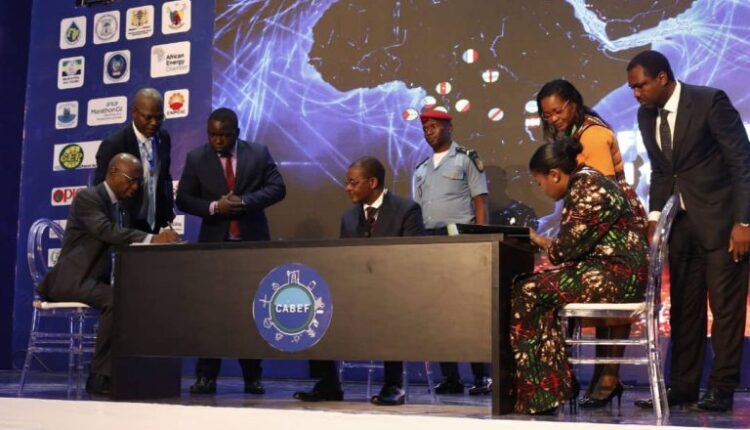H.E. Dr Omar Farouk Ibrahim, the Secretary-General of the African Petroleum Producers Organization, signed the Memorandum of Understanding for the conduct of pre-feasibility and feasibility studies for the construction of a regional pipeline network and infrastructure to enhance energy security and lower ECCAS’s reliance on imported refined goods.
Dr Omar Farouk Ibrahim stated that the project is one of the most ambitious energy infrastructure projects and that when completed, it will fundamentally alter the economies of the ECCAS zone nations by 2030.
The Secretary-General (SG) acknowledged the significant contributions made by the Minister of Hydrocarbons of the Republic of Equatorial Guinea and Alternate President of OPEC, HE Gabriel Mbaga Obiang Lima, the Lead Organizer of the event, Madam Nathalie Lum, the Minister of Hydrocarbons of the Republic of Congo and President of OPEC, HE Bruno Jean-Richard Itoua, and the Minister of Hydrocarbons of the Democratic Republic of the Congo, HE Didier Budimbu Itubuanga.
He said that APPO is enthusiastic about the Central Africa Pipeline System (CAPS) project because it shares the belief that energy can improve the lives of Africans and, in doing so, usher in peace, stability, and socioeconomic development across the continent.
Speaking about an APPO study from 2021 on the “Future of the Oil and Gas Industry in Africa in the Light of the Energy Transition,” he said APPO discovered that if Africa does not immediately address the following three imminent challenges to the industry resulting from the global energy transition: the funding challenge, the technology challenge, and Market/energy challenge, it risks losing over 125 billion barrels of crude oil and another 550+ billion cubic feet of proven gas reserves.
He then described the practical measures that APPO has been taking to successfully address the impending challenges that the African oil and gas industry faces as a result of the global paradigm shift away from fossil fuels to renewable energies. For decades, Africa has relied on these nations for industry technology, project financing, and oil and gas markets.
Regarding financing the sector, he mentioned that on May 16, 2022, following a Ministerial Council resolution, he signed a Memorandum of Understanding with Afreximbank to establish the African Energy Bank. Upon its establishment, the new bank will have $6 billion from Afreximbank’s current energy portfolio to begin with. When fully operational, the EAB will finance energy projects in the oil and gas industry’s upstream, midstream, and downstream segments in addition to those involving alternative energy sources.
Regarding the technological challenge, APPO will evaluate the various centres for oil and gas research, development, innovation, and training in APPO Member Countries to determine which ones have the facilities, tools, and programmes that can be most easily upgraded to regional centres of excellence for oil and gas research, development, innovation, and training for APPO Member Countries. This month, a team from the APPO Secretariat will start the second part of the exercise after finishing the first phase.
The growth of regional and eventually continental energy markets is the third challenge. To address this, he asserted that the Africa Continental Free Trade Agreement’s (AfCFTA) entry into force, which he characterised as “better late than never,” is a key enabler for the accomplishment of CABEF’s goals.



